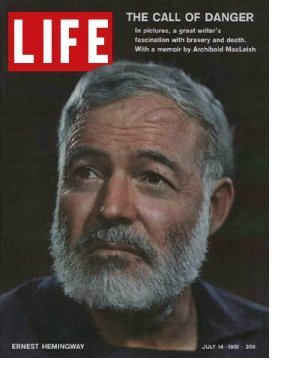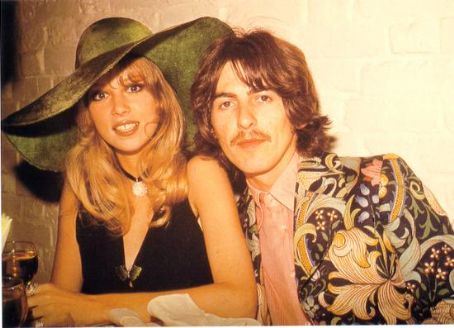Best of Hemingway
by Mat Wilson
http://mdatoz.com
November 25, 2011

H emingway was a great writer because he cared about his craft and the best way to appreciate the genius is to quote the man himself; "Trying to write something of permanent value is a full-time job even though only a few hours a day are spent on the actual writing. A writer can be compared to a well. There are as many kinds of wells as there are writers. The important thing is to have good water in the well, and it is better to take a regular amount out than to pump the well dry and wait for it to refill."
And then, during the same interview where he exposed his perspective about what it means to be a writer, he said; "The further you go in writing the more alone you are. Most of your best and oldest friends die. Others move away. You do not see them except rarely, but you write and have much the same contact with them as though you were together at the café in the old days. You exchange comic, sometimes cheerfully obscene and irresponsible letters, and it is almost as good as talking. But you are more alone because that is how you must work and the time to work is shorter all the time and if you waste it you feel you have committed a sin for which there is no forgiveness."
During that same interview, when asked about the literary forebears he had learned from, Hemingway said; "Mark Twain, Flaubert, Stendhal, Bach, Turgenev, Tolstoy, Dostoyevsky, Chekhov, Andrew Marvell, John Donne, Maupassant, the good Kipling, Thoreau, Captain Marryat, Shakespeare, Mozart, Quevedo, Dante, Virgil, Tintoretto, Hieronymus Bosch, Brueghel, Patinir, Goya, Giotto, Cézanne, Van Gogh, Gauguin, San Juan de la Cruz, Góngora—it would take a day to remember everyone. Then it would sound as though I were claiming an erudition I did not possess instead of trying to remember all the people who have been an influence on my life and work. This isn’t an old dull question. It is a very good but a solemn question and requires an examination of conscience. I put in painters, or started to, because I learn as much from painters about how to write as from writers. You ask how this is done? It would take another day of explaining. I should think what one learns from composers and from the study of harmony and counterpoint would be obvious."
The most fascinating statement of the interview was the following; "A writer without a sense of justice and of injustice would be better off editing the yearbook of a school for exceptional children than writing novels. Another generalization. You see; they are not so difficult when they are sufficiently obvious. The most essential gift for a good writer is a built-in, shockproof, shit detector. This is the writer’s radar and all great writers have had it."
That was 1954, the very year the American novelist and short-story writer was awarded the Nobel Prize for Literature, and just seven short years later, on July 2, 1961, he was dead. What happened to his head?
The most revealing part of the 1954 interview in the Madrid café was when Hemingway was asked the following question; "Do you think a writer’s power diminishes as he grows older? In The Green Hills of Africa you mention that American writers at a certain age change into Old Mother Hubbards." His answer was startingly and ironically perceptive; "I don’t know about that. People who know what they are doing should last as long as their heads last." In order to understand the significance of that, please read this: It will clearly explain what Hemingway called "the buried part of the iceburg."
Next: Hemingway was far too brave to kill himself.
Look who's talking It's not CNN, it's not CNBC, it's not NBC, it's not Fox... Message Board -Click Here !






